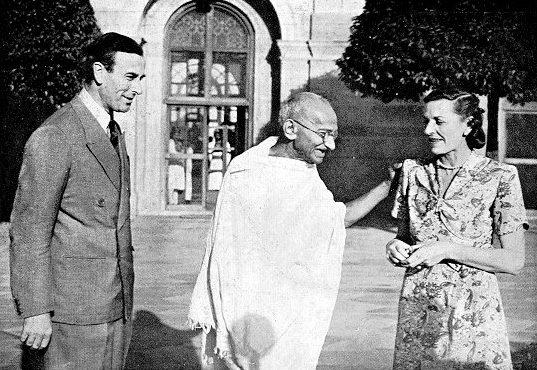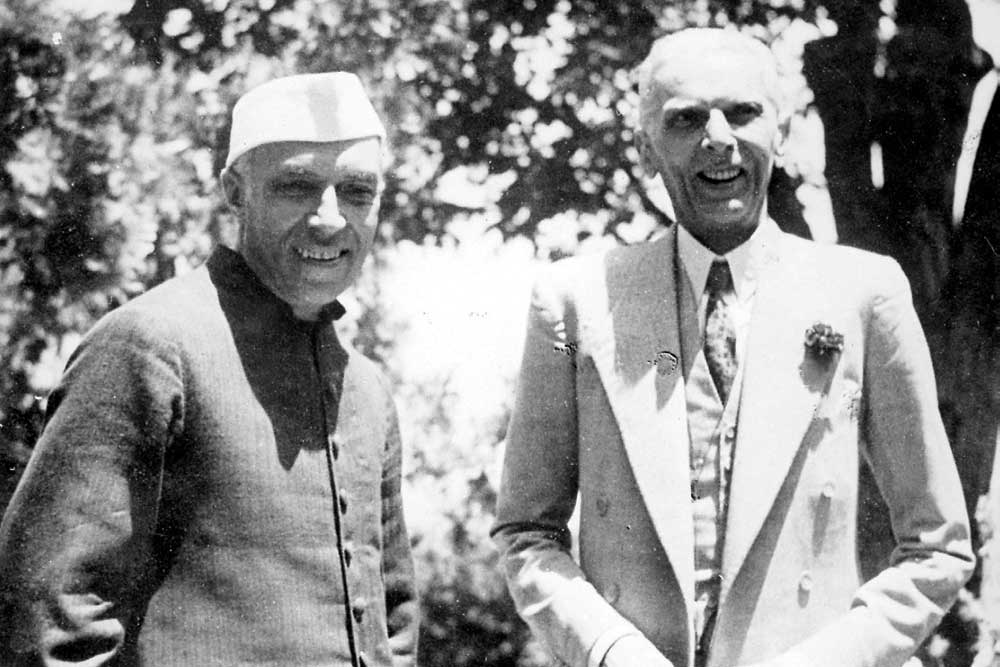(paradox and irony called Pakistan ....
"Seventy-five years in, how we’ve dealt with the founding father is rather shoddy. This is quite aside from the facts of Pakistan itself – where generals win war after war against elected governments, where politicians think the country is an internship for their unemployable children,
...where judges bolt the doors to the assembly in less than a few paragraphs, and where civil servants are as redundant as their fax machines." - says a piece in 'Dawn'
(snap .... Jinnah and members of cabinet mission of 1946)
Quotes --
"Jinnah, with his liberal, free market, pro-Western policies, would have been a far more successful Prime Minister for us than Nehru, with his socialist controls and his pro-Soviet brand of non-alignment.”
- says historian Zareer Masani also author of 'Macaulay: Pioneer of India’s Modernisation'
#
Three people were sent from England. A.V. Alexander, Stafford Cripps, and Frederick Pethick-Lawrence.
They were called Cabinet Mission and the assignment reportedly was to avoid partition of India.
# They represented the Attlee government’s hope that India could still remain whole and united.
** “Summer in New Delhi is not the best time and place for negotiations,” sniffed Cripps.
#$
The idea was that India would stay intact, while the middle layer — smaller sub-countries of Hindus and
Muslims — would enjoy total autonomy.
These would be the three federations, or groups, as the mission called them, roughly consisting of the areas that would later become Pakistan, India, and Bangladesh. There was also an escape hatch — if the fear of Hindu domination hadn’t died down by then, the Muslim groups were free to secede after 10 years. Much to the shock of the mission, Jinnah accepted the plan.
But Nehru didn’t. “When India is free, India will do just what it likes,” he said at a Congress meeting on July 7 (1946).
“We are not bound by a single thing.” He doubled down at a press conference the next day: “It is our problem,” he said of the minorities, “… We accept no outside interference in it, certainly not the British government’s interference in it.”
Nehru’s bombshell had the intended effect — Jinnah broke out of the plan at once.
%$%
Later, Congress leader Abul Kalam Azad called it “one of those unfortunate events which changed the course of history … [Nehru] is at times apt to be carried away by his feelings.”
The mission failed.
$%$%
Sardar Patel, too, criticised Nehru for acting “with childlike innocence, which puts us all in great difficulties quite unexpectedly”.
#$
For Jinnah, to get even a 'moth-eaten Pakistan' was, as a leading imperial historian put it, ‘an amazing triumph,
the outcome not of some ineluctable historic logic, but of the determination of a single individual’.
$ We do not know --- what would have happened if Mountbatten had followed Mahatma Gandhi's advice
and not announced Aug 15, 1947 as the date of British exit.
If he had delayed that .... remains a puzzle --- as Jinnah was already in the final stages of tuberculosis
and died only a year after Partition.
## Nehru himself maintained that he had acted out of the conviction that partition was preferable to a loose federation. He wanted to be master in his own house, free to implement his socialist policies through centralised economic planning
"…. Instinctively I think it is better to [have] Pakistan or almost anything, if only to keep Jinnah far away and not allow his muddled and arrogant head from interfering continually in India’s progress" - Nehru had said.
# Viceroy Wavell did his best to keep the sub-continent united and tried hard to bring both sides back to the negotiating table.
#However, Labour Prime Minister in London, Clement Attlee, decreed otherwise and summarily replaced Wavell - Earl Mountbatten.
## Leader of the Opposition Churchill later called Mountbatten appointment as “a premature, hurried scuttle”.
# Historian Zareer Masani says (https://openthemagazine.com/cover-stories/all-for-the-sake-of-nehru/)
- Mountbatten’s vanity was legendary. Three months after his arrival, he suddenly announced that he was bringing forward the British departure to August 15th, 1947.
He also says Mountbatten made little attempt to explore the alternatives.
## In a meeting with the viceroy, Gandhi suggested that the existing interim government led by Nehru be
dismissed and Jinnah invited to form a new one. “What would Mr Jinnah say to such a proposal?”
Mountbatten asked in surprise. The reply was: “If you tell him I’m the author, he will reply, ‘Wily Gandhi!’”
This might have changed the course of Indian and Asian history.
@@zzzzz







No comments:
Post a Comment